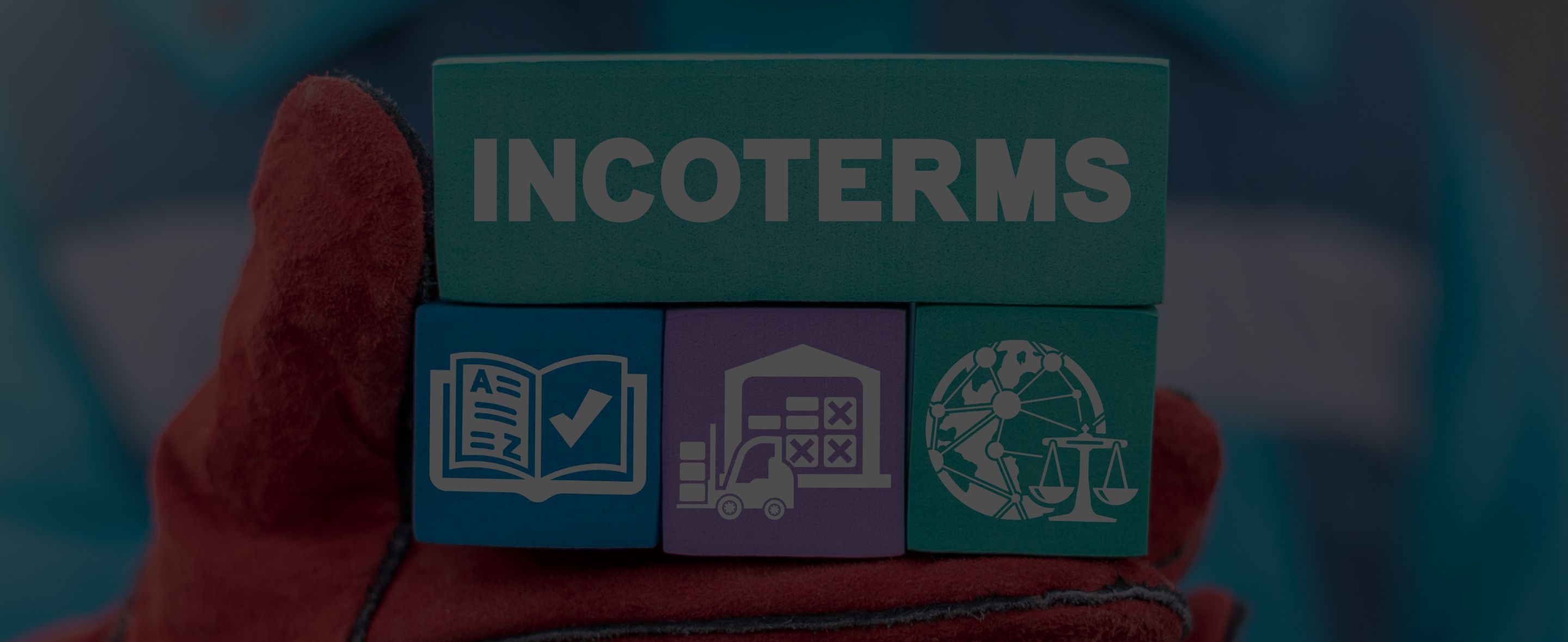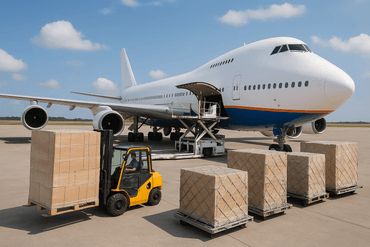
6 common Incoterms mistakes to avoid



Incoterms are part and parcel of any international ocean freight shipment. Established by the International Chamber of Commerce, or ICC, it sets out clear guidelines according to which buyers and sellers must perform their part of the transaction determined by each Incoterm.
Incoterms establish rules and responsibilities for both parties, which can be used to resolve disagreements in the event of a dispute. A chosen Incoterm is decided and must be agreed upon by both buyer and seller, who should not only understand the responsibilities involved with each Incoterm but also ensure that he/she is able to fulfill them.
Despite its importance and the potential consequences a misuse may bring, many buyers and sellers remain unaware of some of the key responsibilities of each Incoterm.
In this article, we’ll go through the six most common mistakes committed by the Incoterms laid out in Incoterms 2010.
1. Using FOB for containerized cargo
Despite popular belief and practice, the FOB Incoterm should only be used for non-containerized ocean freight shipments. This error is so common that it’s become a misconception that’s extremely etched in the minds of both importers and exporters.
The main risk involved lies at the port of origin. Under FOB, risk is officially transferred when the cargo is loaded on board the vessel. However, it is common practice for shippers to hand over the cargo to the carrier at the terminal where it awaits to be loaded onto the vessel.
As the cargo sits at the terminal, it is not considered to on board the vessel yet. Any damage suffered during this time is technically still the shipper’s responsibility and the shipper’s insurance should also cover this portion of the process.
However, in the event of disputes, shippers can and do often argue that he has done his part. So to avoid hassles, delays, and more importantly, the disputes that could risk souring a relationship with a vendor, the result is often the consignee having to assume this cost.
FOB aside, FAS, CFR and CIF are also not appropriate for containerized cargo for the above-mentioned reason.
FCA, CPT, and CIP are the correct alternatives as they are meant for containerized freight. For each of these risk is transferred at origin when the cargo is handed over to the carrier at the agreed upon location at origin.
2. Not specifying the location
Many people are not aware that Incoterms rules allow locations to be specified. In fact, failure to specify a full address may be cause for dispute as the ambiguity allows for the seller to choose any delivery point he wishes within the general location provided.
This may not be at all convenient for the buyer especially if he must spend extra time and money to transfer the cargo to his originally intended final location.
For example, “FCA Miami” could refer to many possible delivery locations in a large area. This leaves much room for the seller’s interpretation and could leave it where it is most convenient for him — which may end up being an inconvenience for the buyer.
To avoid uncertainties, we recommend you to always list an exact location (i.e. Miami port or Miami CFS for LCL shipments) and/or postal code.
3. Sellers committing to DDP or DAP without checking if he/she can handle import responsibilities in the buyer’s country
Under DDP and DAP, the seller is responsible for paying all arrival expenditures at destination. With DDP, this includes paying local taxes and duties (such as GST, VAT, etc) as well as the handling of customs clearance at destination. Note that unlike DDP, DAP does not require customs clearance fees to be prepaid.
The latter requires him to register as an overseas importer in the destination country which is a process that, country dependent, could take tedious and lengthy planning.
In most countries, it is simply more efficient to have consignee handle the local duties and taxes and customs clearance process. Keep in mind, however, that under DDP, the consignee is not legally obliged to do so and failure to do so means responsibility will fall back onto the seller.
Sellers working with an unfamiliar consignee should ensure they can fulfill the responsibilities required of them at destination prior to committing themselves to D- Incoterms. On the other hand, buyers should make sure their suppliers are registered as a foreign importer in the destination country and are capable of carrying out their taxes and duties responsibilities.
As a consignee, while it may not be your responsibility, it’s best to err on the side of caution as any problems that may arise from clearance from the shipper’s error could result in a delay in cargo delivery to you.
4. Buyers using EXW without considering his/her implications in export procedures
This is similar to the aforementioned point with a reversal of roles. Under EXW, the seller has minimal responsibilities, which end with the proper packaging of the merchandise.
From then on, the buyer takes over responsibility, which includes the export procedure from the origin country and any required communication with export authorities. This may not be as straightforward for the buyer, especially if he/she is unfamiliar with the export process of the country of origin. In some cases, the seller may then be required to get involved.
For example, under EXW, the shipper is not required to load the cargo on to the truck during pick up. Since this responsibility lies with the buyer, the buyer often has to hire someone at origin to do the loading.
A potential issue with this is that shippers may not always permit non-authorized personnel to carry out loading on their grounds (due to liability reasons, for example). As a result, the shipper himself may then have to take charge of the loading, which is contrary to EXW’s stipulations. The problem then becomes who the responsible party should be if the cargo is damaged during loading.
Having the buyer take control of this may then be unrealistic and impractical for certain transactions. As an alternative, consider FCA.
5. Using CIP or CIF without checking whether insurance coverage is sufficient and matches the requirements of the commercial contract
Under the CIP and CIF Incoterms, the seller is obliged to provide insurance coverage for the merchandise. According to Incoterms rules, only minimum coverage (110% of the contract value) is required.
This may, however, be insufficient and inadequate for the merchandise being shipped depending on the conditions of the sales contract. In the event the commercial contract requires more coverage, this amount will need to be met.
6. Not aligning Incoterm with bank’s security requirements for payment
This applies to international payment methods such as a Letter of Credit whereby its safe and secure nature suggests a lack of complete trust between buyer and seller.
With a Letter of Credit, payment can only be made after documents required to prove that the conditions of the transaction have been met are submitted to the bank.
C-Incoterms are best suited for payments with Letter of Credit as under these Incoterms, the seller is in control of two of the most important documents required to be produced in order to effect payment: the Bill of Lading and the commercial invoice.
Under F-Incoterms, on the other hand, the buyer is responsible for the transportation of the merchandise and thus has the power to intervene in the issuance of the Bill of Lading, which may then prevent the seller from getting paid.
- 1. Using FOB for containerized cargo
- 2. Not specifying the location
- 3. Sellers committing to DDP or DAP without checking if he/she can handle import responsibilities in the buyer’s country
- 4. Buyers using EXW without considering his/her implications in export procedures
- 5. Using CIP or CIF without checking whether insurance coverage is sufficient and matches the requirements of the commercial contract
- 6. Not aligning Incoterm with bank’s security requirements for payment
Related Articles


